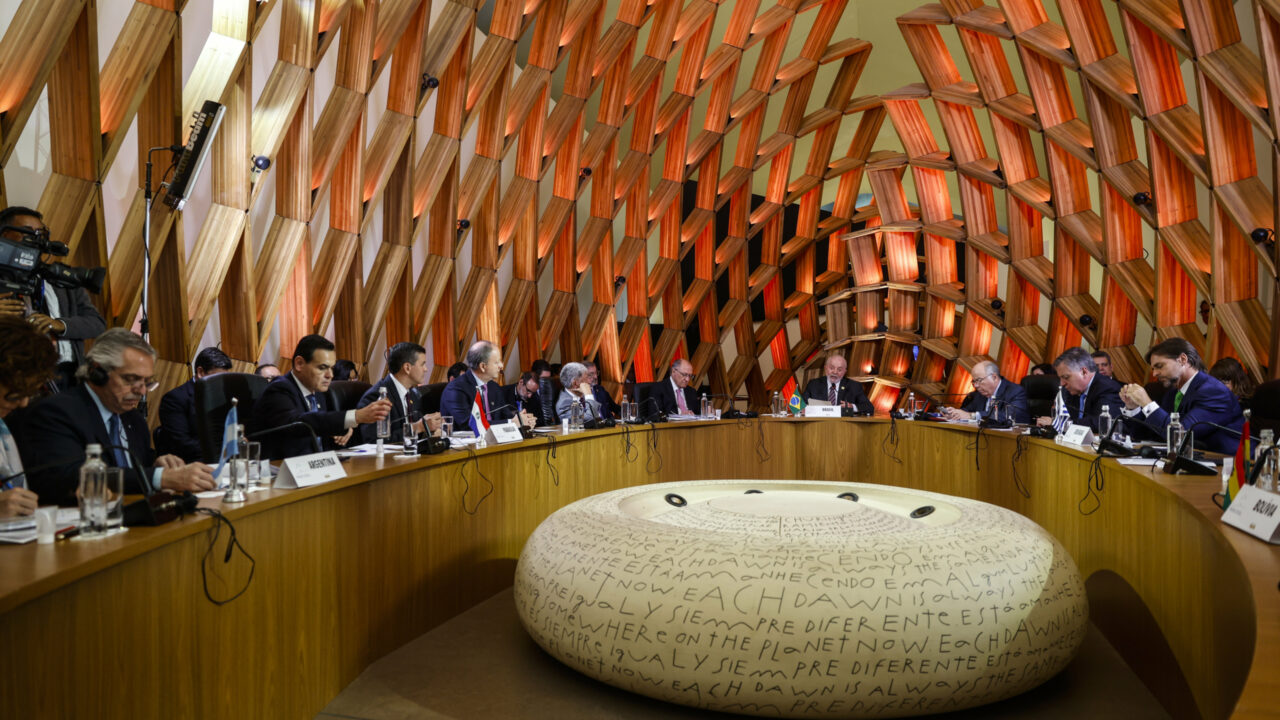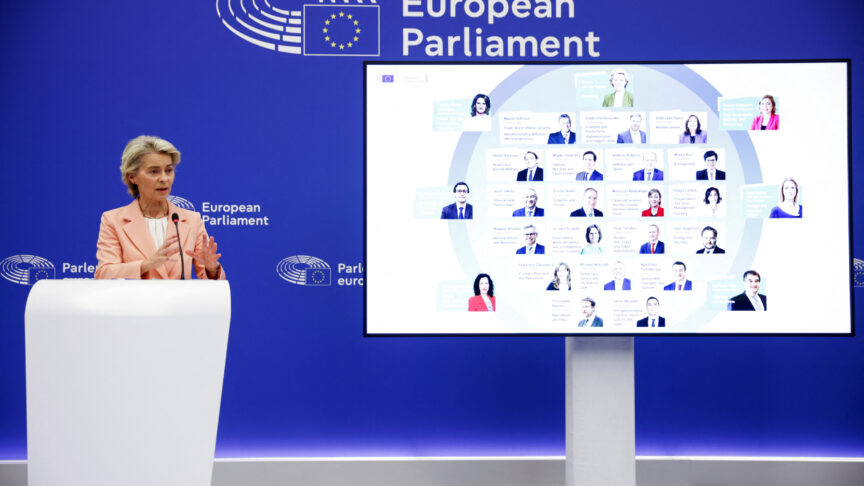
Deepening ties with Mercosur countries makes perfect sense as part of the EU’s de-risking efforts to diversify economic ties away from China. Further delays in signing a free trade deal would push Latin America closer to China’s orbit – for good
Senior Policy Fellow
All looked set for 7 December 2023: after nearly a quarter of a century of negotiations, the European Union and the four members of the Mercosur customs union – Argentina, Brazil, Paraguay, and Uruguay – were due to sign a free trade agreement in Rio de Janeiro. Yet as several times before, all did not go according to plan for the seemingly doomed deal. A few days before the Rio summit, French president Emmanuel Macron declared that the deal did not offer enough environmental guarantees, dashing hopes that the agreement would be inked.
The proposed free trade agreement between the EU and Mercosur is not ideal. A quick Google search yields alarming results about the potential negative impact of the deal on environmental issues, labour rights, animal welfare, safety standards, and procurement processes. Macron’s reservations also speak to tricky domestic politics in France. The French president does not have a majority in parliament, making a ratification of the agreement unlikely. In addition, Macron worries that far-right parties could use the perceived downsides of the agreement on France’s beef and poultry sectors to attract votes from farmers in the June elections for the European Parliament. These concerns, alongside those of a handful of other EU member states like Austria, are valid. But the bigger picture is that not signing the deal would be short-sighted and harm Europe’s interests.
The usual economic argument in favour of the EU-Mercosur deal revolves around the fact that the free trade area would be huge, covering around 750 million people and about one-fifth of the global economy. Despite these impressive metrics, the economic impact of the agreement would be small for the EU; the deal would provide a GDP boost of only around 0.1-0.3 per cent. This is because trade between Europe and Mercosur economies is low, with the Latin American customs union absorbing only 2 per cent of the EU’s global exports.
The agreement’s economic value lies elsewhere. It is two-fold: firstly, Mercosur countries hold vast reserves of the critical raw materials that will be crucial for the EU’s green energy transition. This is excellent news for Brussels, given the bloc’s goal to curb reliance on China for such commodities. Brazil, for instance, has around 20 per cent of the world’s reserves of graphite, nickel, manganese, and rare earths (all crucial elements for clean tech equipment). The country also holds 94 per cent of global reserves of niobium, a metal that is used in the aerospace sector and features in the EU’s list of critical raw materials. Brazil is not the only Mercosur country with such large deposits of critical raw materials: Argentina has the world’s third-largest reserves of lithium, a key input for electric-vehicle batteries.
Secondly, a free trade deal with Mercosur would support Europe’s de-risking efforts. European institutions are hard at work trying to find ways to convince EU firms to relocate supply chains away from China, ideally to like-minded countries (read: democracies). The EU-Mercosur free trade agreement would help to do just that. By lowering tariffs on European exports to Mercosur economies, notably for chemicals (currently facing an 18 per cent tariff) and machinery (hit by tariffs of 14-20 per cent), the deal could help to convince European firms to develop production lines in Latin America. Mercosur countries are not untapped territory for European companies; the EU is already the biggest source of foreign direct investment in the customs union. The timing of the deal looks perfect for Mercosur countries, too: in recent years they have embarked on ambitious policy reforms to develop their local industrial sectors.
Beyond economics, the EU-Mercosur deal also has wider geopolitical value. Latin America is a region of intense competition for influence between Western countries and China. This is not new: at the height of the covid-19 pandemic, China’s vaccine diplomacy focused on Latin America. A failure to sign the EU-Mercosur free trade agreement risks pushing Latin American economies closer to Beijing’s orbit. Uruguay, in particular, has long voiced its preference for a free trade deal with China over one with the EU. The Uruguayan government has solid arguments: China is the top destination for Mercosur exports and Beijing has planned to invest $250 billion in the region by 2025 (an amount five times higher than that inked in the EU’s Global Gateway programme). So far other Mercosur countries are prioritising a free trade deal with the EU over one with China, but their patience is wearing thin.
